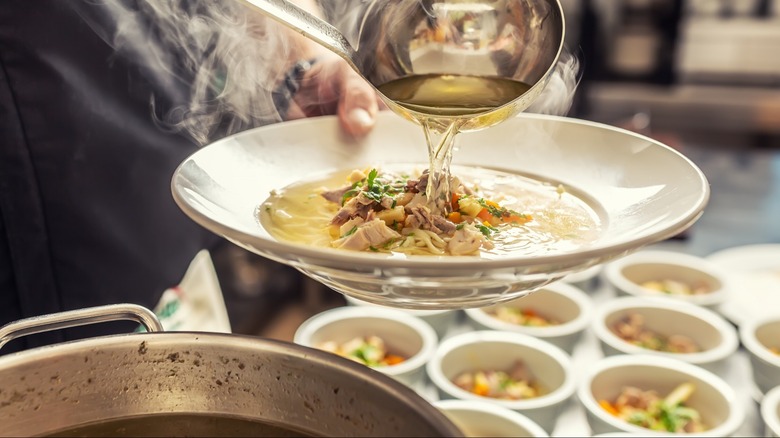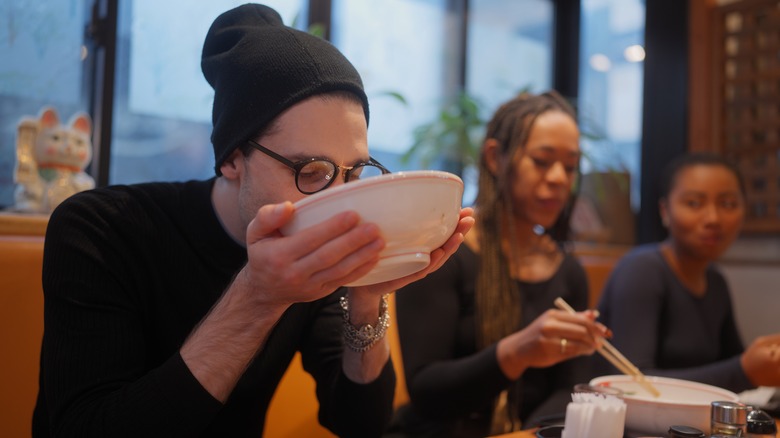Why Ordering Soup At A Restaurant May Be A Mistake
While soup isn't the most exciting thing to order from a restaurant, you may find yourself craving the various flavor combinations as a lunch or light dinner option. From cream-based soups like chowder and broccoli cheddar to lighter options like chicken noodle or minestrone, occasionally opting for a warm and comforting bowl is understandable. However, some restaurant workers warn against ordering soup because of how long it sits in the kitchen.
One TikTok user shared their experience as a restaurant employee with a video captioned: "There's no way you worked in food service before if you still order soup at restaurants." The insinuation was that those behind the scenes of a kitchen know better. The top comment confirmed that some restaurants serve the same soup for weeks with another commenter explaining that their soup of the day gets microwaved, adding that it's "been in the freezer for months."
This practice is likely undertaken to prevent waste and cut costs. However, food safety and sanitation are major concerns. The "food danger zone" is the temperature range in which bacteria and other organisms grow rapidly. Unfortunately, it is a range between 40 and 140 degrees Fahrenheit. This is particularly concerning for soups and stews that are kept on a burner all day and then cooled each night before refrigeration because the soups constantly have to move through this temperature zone. Plus, to reduce the risk of pathogen growth, they only have a few short hours to make this temperature transition.
For soup lovers, concerns are out of sight, out of mind
Luckily, some restaurants are doing soup right, and Olive Garden is one of them, with its food being fresher than you may have thought. According to an employee who spoke with PopSugar, all of the signature soups on the Olive Garden menu "are made by hand and from scratch every morning."
Understandably, it's likely easier for a restaurant like Olive Garden to sell large quantities of soup daily since it has the never-ending soup, salad, and breadstick promotion with the option to choose a bowl of soup before each entrée. The more concerning soup spots are fast food restaurants or diners where soup is unlikely to be a top menu choice. This increases the likelihood of your multi-day-old soup containing a foodborne pathogen like Bacillus cereus, which can lead to vomiting and diarrhea. Soups should be refrigerated in long, flat containers to maximize the surface area getting cooled. In restaurants, storage can be uncertain.
According to Gordon Ramsay, there's something you should always do before ordering the soup of the day. In a 2017 interview, the chef told Town and Country that you should ask what the previous day's soup special was before placing an order. He noted, "It may be the case that it's the soup du month." It's a clever hack that can help restaurant-goers discern how fresh the soup is. Of course, certain flavors can be enticing, but it's important to understand the risks with ordering a bowl.

